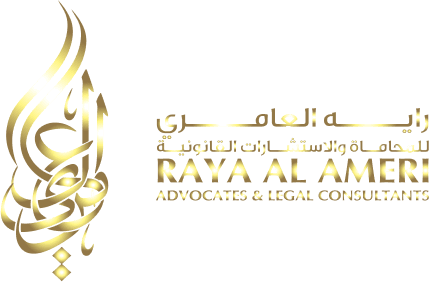Divorce by Mutual Consent in UAE Law
In the United Arab Emirates, the legal proceedings for divorce can be conducted under the jurisdiction of UAE law or may follow the legal framework of the individuals’ respective home countries. This choice often depends on the nationalities of the parties involved. In cases where the couple hails from different nations, the governing law for the divorce typically defaults to that of the country where the marriage was initially solemnized.
The Concept of Divorce by Mutual Consent in Dubai
The concept of divorce by mutual consent in Dubai is designed to be a clear-cut and expedient process. It is an avenue where both parties reach a mutual agreement to separate amicably, avoiding any form of contentious dispute. This process is favored for its straightforward nature, allowing couples to conclude their marital ties with dignity and respect for one another’s future well-being.
The emphasis is on a harmonious resolution, where both individuals collaborate to settle their differences and agree on terms without the need for prolonged legal battles. Unlike contested divorces, this method is less adversarial and often quicker.
Key Takeaways:
-
- Mutual consent divorce is a streamlined legal process in the UAE.
-
- The Personal Status Court governs family matters, including divorce.
-
- Time frames and financial outcomes vary, especially for expats.
-
- Different laws apply to Muslim and non-Muslim couples.
-
- Legal representation is highly recommended.
The Personal Status Court: Your Guide to Family Matters
The Personal Status Court in the UAE is the judicial body responsible for overseeing family-related issues, such as marriage, divorce by mutual consent, alimony, and custody. Governed by Federal Law No. 28 of 2005, this court plays a pivotal role in the divorce process.
The Intricacies of Mutual Consent Divorce
The Mutual Divorce Process in the UAE
The first step in a mutual consent divorce involves both parties filing a joint petition in the Personal Status Court. This petition outlines the terms of the divorce by mutual consent, including alimony, custody, and asset division.
Filing a Joint Petition:
The process begins when both parties come together to file a joint petition at the Personal Status Court. This is a legal document that signifies the mutual intention to dissolve the marriage.
Legal Representation:
While not mandatory, it is advisable for each party to seek independent legal counsel. Lawyers can provide valuable advice on the rights and obligations of each party under UAE law and help ensure that the agreement for divorce by mutual consent is legally sound and enforceable.
Submission of Documents:
Along with the joint petition, the couple must submit all required legal documents to the court. This typically includes identification papers, marriage certificate, proof of residency, income statements, and any prenuptial agreements or contracts that may have been signed.
Court Review:
Once the petition and settlement agreement for divorce by mutual consent are submitted, the court will review the documents to ensure they comply with UAE law and that the terms are equitable. The court may request additional information or clarification if necessary.
Mandatory Counseling:
After the initiation of the divorce proceedings by either spouse, the case is referred to a mediation department to explore the possibility of an amicable resolution through divorce by mutual consent.
During this stage, a mediator works with both parties to facilitate a settlement. Should the parties reach an agreement, it is documented in a formal report and endorsed by the mediator, both spouses, and a judge. In the event that the parties cannot come to an agreement, the mediator will issue a formal authorization allowing the petitioner to continue with the legal process. With this authorization in hand, the petitioner is then able to move forward with the divorce proceedings in court.
Scheduling a Court Appearance:
The couple must secure a date to appear before the court to advance their divorce proceedings. Attendance at this hearing is mandatory for both spouses as they navigate through the process of legally dissolving their marriage through divorce by mutual consent.
Approval and Ratification:
If the court is satisfied with the petition and the agreement, and counseling sessions do not result in reconciliation, it will ratify the divorce by mutual consent. This ratification legally binds the agreement and marks the formal dissolution of the marriage.
Issuance of Divorce Certificate:
After the court’s ratification, a divorce certificate is issued, officially documenting the end of the marriage. This certificate is a crucial document and may need to be attested for use outside the UAE.
Execution of Terms:
Post-divorce, both parties must adhere to the terms set out in their agreement for divorce by mutual consent. This includes executing the division of assets, arranging for alimony payments, and adhering to custody and visitation schedules.
Post-Divorce Formalities:
Depending on the circumstances, there may be additional formalities to address post-divorce, such as updating personal documents, revising wills, and notifying relevant authorities about the change in marital status.
Time Required for the Divorce by Mutual Consent
The duration for obtaining a divorce by mutual consent can differ, but it is typically a swifter process than contested divorces. If both parties are in accord, the Personal Status Courts can often finalize these proceedings in as short as one month.
Waiting Period: A Time for Reflection
The 6-month waiting period is often a time for both parties to reflect on the decision and explore any chance of reconciliation.
The Waiting Period for Expats
Expatriates may find that the waiting period is influenced by the laws of their home country, adding another layer of complexity to the process.

Financial Implications for Expats
Expatriates should be aware that the financial outcomes of a divorce by mutual consent can be significantly different than those for UAE nationals. Asset division and alimony can be complex issues that require expert legal advice.
Financial settlements, including alimony and property division, are often contentious issues. Both parties must come to a complete agreement on these matters for the divorce to proceed smoothly.
When navigating an amicable separation, expatriates must tackle the complex terrain of asset division, especially when those assets are substantial and spread across different countries. It’s crucial to consult with a seasoned attorney who can offer strategic guidance on how to equitably divide these assets, taking into account the various legal jurisdictions involved.
Additionally, in instances where the spouse has endured psychological distress due to the divorce, she may be entitled to pursue a claim for damages. This compensation is meant to address the mental anguish and emotional toll that the dissolution of the marriage has imposed on her. A formal settlement agreement outlines the financial terms of the divorce, including any alimony or child support payments, ensuring that both parties have a clear understanding of their financial standings post-divorce.
Settlement Agreement
A formal settlement agreement outlines the financial terms of the divorce by mutual consent, including any alimony or child support payments.
Divorces That Don’t Qualify
Not all divorces can proceed through the mutual consent route. For example, if one party withdraws their consent during the process, the divorce becomes contested and will require a different legal approach.
Divorce Laws for Different Faiths
For Muslim Couples
Islamic law has specific provisions for divorce, including the requirement for the husband to provide a mahr (dower) to the wife.
For Non-Muslim Couples
Non-Muslim couples can choose to have their divorce proceedings governed by the laws of their home country. However, this often complicates the process and extends the time frame.
Associated Costs
Legal fees can vary widely depending on the complexity of the case and whether or not you choose to hire a lawyer for divorce by mutual consent.
The initial cost for opening a case file and obtaining the divorce certificate is quite affordable, hovering around Dh500. However, there are additional expenses that couples should be aware of. These include legal representation fees, which can vary depending on the complexity of the case and the lawyer’s expertise.
Furthermore, the process of attesting the divorce certificate involves multiple steps, including verification from the Ministry of Justice, the Ministry of Foreign Affairs, and the consulate of the couple’s home country. Collectively, these attestation fees can amount to approximately Dh1,200, although this figure may fluctuate based on the specific consulate involved.

Child Custody: A Delicate Matter in Mutual Consent Divorce
Determining custody of the child or children is often the most emotionally charged aspect of a divorce by mutual consent. The court takes into account several factors, including the child’s age, the parent’s financial stability, and the child’s wishes, if applicable.
Visitation Rights
The non-custodial parent is usually granted visitation rights, allowing for a continued relationship with the child, which is an essential consideration in divorce by mutual consent.

Legal Documentation: The Backbone of Divorce Proceedings
Legal documentation forms the cornerstone of any divorce process. From the initial petition for divorce by mutual consent to the final decree of divorce, every step is documented to ensure transparency and legality.
Required Documents:
-
- Marriage certificate: Proof of the marital relationship.
-
- Address Proof – Husband and Wife: Required for jurisdictional purposes.
-
- Income tax statements: Especially important when alimony and child support are involved.
Legal Experts in Divorce Cases
Choosing the right divorce lawyer can make a significant difference in the outcome of your case. Expert legal advice is crucial for navigating the complexities of UAE divorce laws, particularly when it comes to divorce by mutual consent.
It’s crucial to select an experienced divorce lawyer who is well-versed in UAE divorce laws and the nuances of divorce by mutual consent. Their expertise can guide you through the maze of legal requirements and ensure that your rights and interests are adequately represented and protected throughout the process.

